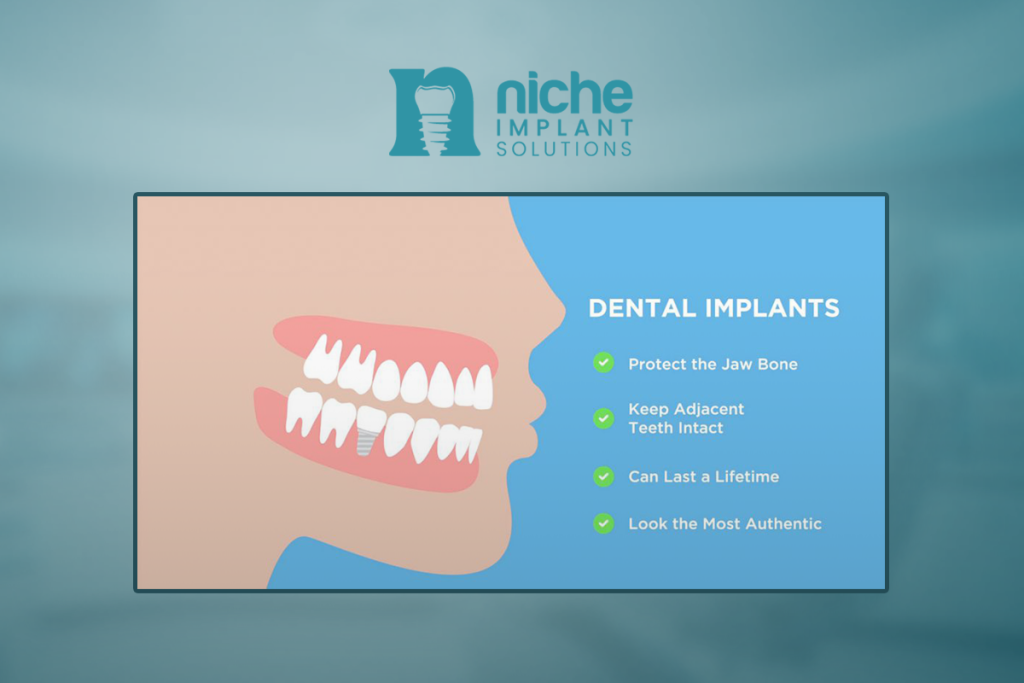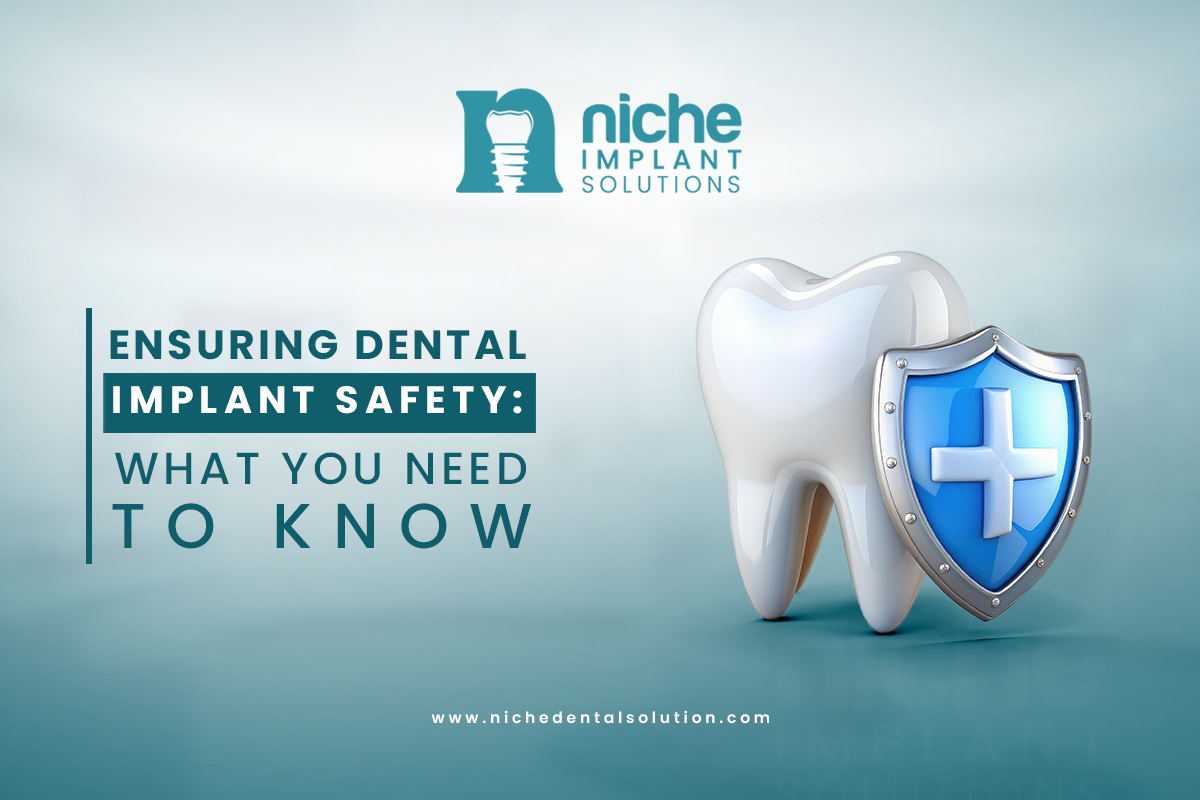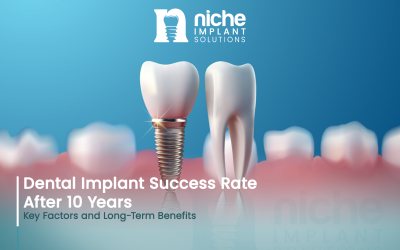Dental implants have become a popular solution for missing teeth, providing a permanent and natural-looking alternative to dentures and bridges. As with any medical procedure, ensuring dental implant safety is paramount for achieving optimal outcomes. In this comprehensive guide, we will explore everything you need to know about dental-implant safety, including the procedures, risks, benefits, and best practices for maintaining implant health.
The Importance of Dental Implant Safety
Dental implant safety is crucial not only to prevent complications but also to ensure the longevity and effectiveness of the implants. The safety of dental implants depends on various factors, including the surgical procedure, post-operative care, and the overall health of the patient.
Key Factors Affecting Dental Implant Safety
1. Patient’s Overall Health
Your overall health has a direct impact on dental-implant safety. Conditions such as diabetes, osteoporosis, or autoimmune diseases can affect bone healing and integration. It is crucial to disclose your full medical history to your dentist to tailor the treatment plan accordingly. Your dentist may need to coordinate with your primary care physician to manage any underlying health issues effectively.
2. Bone Quality and Quantity
The success of dental implants largely depends on the quality and quantity of the jawbone. Adequate bone density is necessary to support the implant securely. Your dentist will conduct a thorough evaluation, including X-rays or 3D imaging, to assess bone structure and determine if bone grafting is needed to enhance implant stability.
3. Surgical Expertise
\The expertise of the oral surgeon is vital for ensuring dental implant safety. A skilled and experienced professional can precisely place the implant, reducing the risk of complications. At Niche Company, we partner with highly qualified dental professionals who are well-versed in the latest implant technologies and techniques.
4. Quality of Implant Materials
High-quality materials are essential for dental implant safety. Titanium implants are widely preferred due to their biocompatibility and strength. Ensuring that the implants are sourced from reputable manufacturers guarantees their durability and effectiveness. Our company offers implants made from top-tier materials to provide reliable and safe solutions for our clients.
Understanding Dental Implants
Before diving into safety concerns, it’s essential to understand what dental implants are and how they work. Dental implants are artificial tooth roots, usually made of titanium, that are surgically placed into the jawbone. Once in place, they serve as a foundation for attaching replacement teeth, such as crowns or bridges.

The Components of a Dental Implant
- Implant Fixture: This is the screw-like part that is inserted into the jawbone.
- Abutment: This connects the implant fixture to the artificial tooth.
- Crown: The visible part of the implant that resembles a natural tooth.
Common Risks and Complications
While dental implants are generally safe, there are potential risks and complications that patients should be aware of. Understanding these risks can help in mitigating them and ensuring a successful outcome.
Infection
Infection is a significant risk associated with dental implants. Proper sterilization of equipment and adherence to post-operative care instructions are vital to prevent infections. Symptoms of infection may include pain, swelling, and redness around the implant site.
Implant Failure
Implant failure can occur due to several reasons, such as inadequate bone integration, mechanical issues, or poor oral hygiene. Early detection of problems and timely intervention can help address issues before they lead to implant failure.
Nerve Damage
In rare cases, the implant may be placed too close to a nerve, leading to numbness, tingling, or pain in the lower lip, chin, or gums. A thorough pre-surgical evaluation helps to minimize the risk of nerve damage.
Sinus Issues
For implants placed in the upper jaw, there is a risk of affecting the sinus cavities. This can lead to sinus infections or other complications. Pre-surgical imaging helps in assessing the proximity of the implant site to the sinuses.
By being aware of these potential risks and working closely with a qualified dental professional, you can significantly enhance dental implant safety and improve your chances of a successful outcome. Regular monitoring, good oral hygiene, and proactive care are key to mitigating these risks and ensuring that your dental implants remain a safe and effective solution for your dental needs.
Pre-Surgical Evaluation
A comprehensive pre-surgical evaluation is essential for ensuring dental-implant safety. This evaluation typically includes:
- Medical History Review: To identify any health conditions that could impact the implant procedure.
- Imaging Studies: X-rays or 3D scans to assess bone quality and quantity, and to plan the precise placement of the implant.
- Gum Health Assessment: To ensure that the gums are healthy and capable of supporting the implant.
The Surgical Procedure
The surgical procedure for placing dental implants is a critical phase in ensuring dental implant safety. Here’s a general overview of what to expect:
Anesthesia
Local anesthesia is administered to numb the area where the implant will be placed. In some cases, sedation may be used to ensure the patient is comfortable throughout the procedure.
Also look: PEEK Dental Implants: The Future of High-Performance Tooth Replacement
Placement of the Implant
The oral surgeon makes an incision in the gum to expose the jawbone and then drills a hole for the implant fixture. The fixture is then inserted into the bone, and the gum is stitched back in place.
Healing Period
After placement, the implant needs time to fuse with the bone in a process called osseointegration. This healing period can take several months, during which time the implant integrates with the bone to provide a stable foundation for the replacement tooth.
Post-Operative Care
Proper post-operative care is crucial for ensuring dental implant safety and success. Patients should follow their dentist’s instructions carefully, which may include:
- Pain Management: Taking prescribed pain medications and using over-the-counter pain relievers as needed.
- Oral Hygiene: Maintaining excellent oral hygiene to prevent infections. This includes brushing and flossing regularly and using antibacterial mouth rinses.
- Dietary Restrictions: Avoiding hard or sticky foods that could disrupt the healing process or damage the implant.
- Follow-Up Appointments: Attending scheduled follow-up visits to monitor the healing process and address any issues.
Long-Term Maintenance and Care
Ensuring the long-term safety of dental implants requires ongoing care and maintenance. Regular dental check-ups are essential for monitoring the health of the implants and surrounding tissues.
Oral Hygiene
Good oral hygiene practices are critical for the longevity of dental implants. Patients should brush twice daily, floss daily, and use a mouthwash recommended by their dentist.
Professional Cleanings
Regular professional cleanings by a dental hygienist help remove plaque and tartar buildup around the implant, which can prevent gum disease and other complications.
Monitoring for Issues
Patients should be aware of any changes in their oral health, such as discomfort, changes in bite, or signs of infection. Promptly addressing these issues can help in maintaining the safety and effectiveness of the implants.

Choosing a Qualified Dentist
Selecting a qualified and experienced dentist or oral surgeon is one of the most important factors in ensuring dental implant safety. Consider the following when choosing a provider:
- Credentials: Verify the dentist’s qualifications, experience, and specialization in dental implant procedures.
- Reviews and Recommendations: Read patient reviews and seek recommendations from trusted sources to gauge the provider’s reputation.
- Consultation: Schedule a consultation to discuss your needs, concerns, and the proposed treatment plan. This will help you assess the dentist’s approach and expertise.
Ensuring dental-implant safety involves a combination of proper planning, surgical precision, and diligent post-operative care. By understanding the factors that contribute to dental implant safety and following best practices, you can achieve successful outcomes and maintain the health and longevity of your dental implants.
Whether you’re considering dental implants or already have them, staying informed and proactive about dental-implant safety is key to enjoying the benefits of a complete and healthy smile. Remember to choose a qualified dental professional, adhere to recommended care practices, and address any concerns promptly to ensure the ongoing success of your dental implants.
Dental Implant Safety: Essential Insights for Optimal Success With Niche
In the world of restorative dentistry, dental implants stand out as a revolutionary solution for replacing missing teeth. However, while the benefits of dental implants are numerous, ensuring their safety is crucial for achieving the best results. At Niche, we prioritize your dental implant safety by offering a range of high-quality products and services designed to meet the highest standards of care. This comprehensive guide delves into the critical aspects of dental-implant safety, helping you make informed decisions and ensure successful outcomes.
Choosing a Qualified Dental Professional
Selecting a qualified and experienced dental professional is crucial for ensuring dental implant safety. When choosing a provider, consider the following factors:
Credentials and Experience
Verify the dentist’s qualifications, experience, and specialization in dental implant procedures. Look for professionals with extensive training and a proven track record of successful implant placements.
Patient Reviews and Recommendations
Read patient reviews and seek recommendations from trusted sources to gauge the provider’s reputation and quality of care. Positive feedback from other patients can provide valuable insights into the dentist’s expertise and approach.
Schedule a consultation to discuss your needs, concerns, and the proposed treatment plan. This meeting will help you assess the dentist’s approach, answer any questions, and ensure you feel confident in their ability to handle your implant procedure.
Conclusion
Dental implant safety is a crucial aspect of achieving successful and long-lasting results. By understanding the factors that influence dental-implant safety and following best practices for care and maintenance, you can enjoy the benefits of a complete and healthy smile. At [Your Niche Selling Company], we are dedicated to providing high-quality products and services that prioritize your dental implant safety. From choosing the right materials to partnering with experienced dental professionals, we are committed to supporting your journey toward optimal dental health.
Ensuring dental-implant safety involves careful planning, expert execution, and diligent post-operative care. By staying informed and proactive, you can achieve the best possible outcomes and enjoy the many advantages of dental implants. If you have any questions or need assistance with your dental implant needs, feel free to contact us. We are here to help you every step of the way, ensuring your dental implant journey is as smooth and successful as possible.





0 Comments